We know. We know. Black folks need to wear sunscreen. But deep down, you might believe that because you have been blessed with a burnished brown skin tone, you are naturally protected from the sun; think again. Folks, we need to know more about sunscreen. Dr. Alexis Stephens of Parkland Dermatology in Coral Springs, Florida, says that the protection we think we have is not enough.
“Despite the prevalent misconception that melanin-rich skin doesn’t need sunscreen, it’s crucial for everyone to use it. While melanin provides some natural protection against UV radiation, it is insufficient to prevent skin damage, premature aging, or skin cancer. Sunscreen shields the skin from harmful UVA and UVB rays, which can cause hyperpigmentation, photoaging, and skin cancer. Daily use of sunscreen is vital in maintaining healthy skin and preventing long-term damage, ensuring that your skin remains radiant and protected.”
So, don’t consider sunscreen a summertime staple but an everyday essential. Sitting in front of a computer screen all day exposes your skin to blue light. And the best one is the sunscreen you continually use!
With so many to choose from, where does one start, and what does one look for?
We’ve removed some guesswork by answering some of your biggest questions about sunscreen and sharing some of our favorite picks.
What are the benefits of using sunscreen?
Sunscreen can block UV rays that stimulate melanin production. While significantly reducing and preventing uneven skin tone and hyperpigmentation, maintains Ginille Brown, a Los Angeles-based Aesthetic Nurse Practitioner and Founder of Ginille Beauty Aesthetic. “Many of my Black and brown patients see improvement in hyperpigmentation once they incorporate daily sunscreen into their routine. Moreover, treatments like laser, microneedling, facials, and chemical peels are more effective and safer when combined with diligent sun protection,” she states. In addition to sunscreen, using sun-protective clothing such as hats and gloves and avoiding the sun can enhance protection.
What should those with melanin-rich skin look for in sunscreen?
Dr. Stephens states that when selecting a sunscreen, individuals with melanin-rich skin should seek products that offer broad-spectrum protection with an SPF of 30 or higher. Broad spectrum means the sunscreen protects you from both UVA and UVB rays. Choosing a sunscreen that doesn’t leave a white caste is essential, which is a common issue with many mineral-based sunscreens (more on that below). Opt for formulations with micronized zinc oxide or chemical/organic sunscreens that blend seamlessly into the skin. Hydrating ingredients and antioxidants can also be incredibly beneficial, helping maintain skin health and prevent hyperpigmentation. Look for sunscreens enriched with nourishing components like hyaluronic acid, vitamin E, and Niacinamide, which protect the skin and enhance its overall appearance and texture.
What is the difference between mineral sunscreens and chemical sunscreens?
Brown explains that mineral sunscreens contain active ingredients like zinc oxide or titanium dioxide that sit on the skin’s surface and physically block UV rays. Chemical sunscreens contain organic compounds like Oxybenzone or avobenzone that absorb UV radiation and convert it into heat, which is then released from the skin. She also suggests that those with sensitive skin should use mineral sunscreens with zinc oxide or titanium dioxide as they are less likely to irritate.
Two to try: Check out Brown’s brand, Jasi Skin Crystal Clear Mineral SPF 45, $64, or CeraVe Hydrating Mineral Sunscreen SPF 50 Body Lotion.
Wait a minute. Are all chemicals safe to use?
According to the Environmental Working Group, out of 1,700 products tested, which included recreational sunscreens and daily-use SPF products, nearly 300 contain Oxybenzone, octinoxate, or both; half of the products raise significant concerns about allergies. Avoid Oxybenzone and octinoxate, both found in many chemical sunscreens, which are harmful to human health and the environment. The National Institutes of Health reports that they are known to cause allergies in people and disrupt hormones, while in nature, they harm coral reefs and fish, causing bleaching and even death.
What is an SPF? What number should we be looking for?
Cosmetic chemist Nongdo Bougouma says according to the FDA, SPF is a measure that indicates how long it takes for UV rays to redden protected skin (i.e., skin with sunscreen) compared to unprotected skin (i.e., skin without sunscreen). For example, if it takes 10 minutes to sunburn without sunscreen, with an SPF of 50, it will now take 500 minutes. Nurse Practitioner Brown adds that a higher SPF offers more protection, but only to a certain extent. SPF 30 blocks about 97% of UVB rays, while SPF 50 blocks about 98%. Beyond SPF 50, the increase in protection is minimal.
An SPF of at least 30 is recommended for everyday use. An SPF of 50 or higher should provide additional protection against intense UV exposure for extended outdoor activities, such as a day at the beach. Look for sweat— and waterproof sunscreens or water-resistant sunscreens to ensure long-lasting protection. Using moisturizers or makeup with SPF is not enough. It’s essential to use sunscreen in addition to other skincare products and makeup, even if they contain SPF.
Help me start my journey. Which sunscreens are meeting melanated needs?
Black Girl Sunscreen Ultra Sheer SPF 30 Moisturizing Sunscreen, $19, is an excellent place to start if you have normal to dry skin. But if you have oily skin, try Black Girl Sunscreen, Make it Matte, SPF 45, $17.99.


Supergoop! Play Everyday Lotion SPF 50, $36, Lightweight, sweat and water-resistant.


Neutrogena Ultra Sheer Dry-Touch Broad Spectrum SPF 55, $13.99, is a tried-and-true sunscreen for all-over use and long sunny days at the beach.
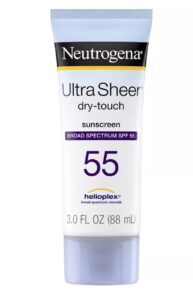

Face card approved: Tinted sunscreens come to the rescue in deeper shades that convert a bevy of hues and go the distance as a protectant and makeup. Expect a glow-up as they all include good-for-skin ingredients like hyaluronic acid to provide hydration and retain moisture.
Reach for:
EltaMD Skincare UV Daily Broad Spectrum 40 Deep Tint, $45 (but don’t sleep on the transp option, UV Clear SPF 46), contains Niacinamide, which helps reduce the appearance of discoloration and blemishes.

Live Tinted Hueguard Skin Tint SPF 50, $42. Natural ingredients like Butterfly Bush Flower Extract prevent collagen breakdown and encourage skin repair.

Fenty Beauty Hydra Vizor Huez SPF 30 Refillable Tinted Moisturizer Set, $48. It comes in 10 shades. Rich in antioxidants, it reduces the appearance of pores, dark spots, and fine lines.
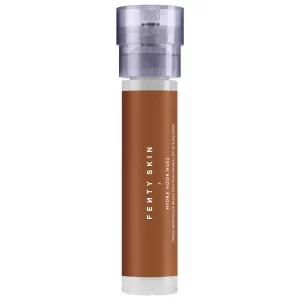
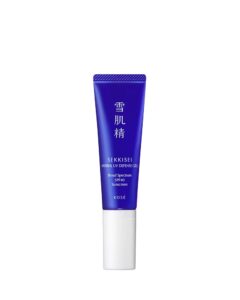 Clear formulas: SEKKISEI, Herbal UV Defense Gel Broad Spectrum SPF 40 Sunscreen, $30, is the perfect marriage of ancient herbal ingredients and modern technology in a clear formula that works for our skin. Ingredients include licorice root to reduce irritation, Angelica Gingas root, which reduces hyperpigmentation and keeps skin hydrated, and Job’s Tear Seed Extract. The formula is encapsulated in an oil-in-water emulsion that absorbs quickly into the skin so the sunscreen doesn’t feel greasy.
Clear formulas: SEKKISEI, Herbal UV Defense Gel Broad Spectrum SPF 40 Sunscreen, $30, is the perfect marriage of ancient herbal ingredients and modern technology in a clear formula that works for our skin. Ingredients include licorice root to reduce irritation, Angelica Gingas root, which reduces hyperpigmentation and keeps skin hydrated, and Job’s Tear Seed Extract. The formula is encapsulated in an oil-in-water emulsion that absorbs quickly into the skin so the sunscreen doesn’t feel greasy.
Then glow and protect your body with these two perfect picks:
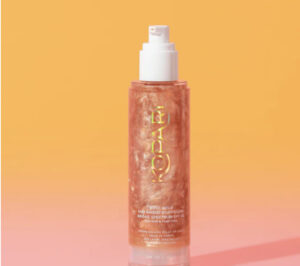

Kopari Sun Shield Body Glow Sunscreen, $42, is a lightweight gel sunscreen infused with vitamin E, macadamia, and hibiscus oils available in SPF 30-50 in shades of amber, gold, or rose with UVA and UVB coverage.
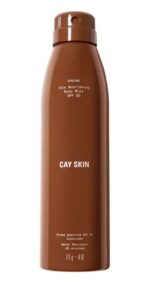

Cay Skin Nourishing Body Mist SPF 50 with Sea Moss and Hyaluronic Acid, $26. It is easy to apply spray. It offers broad-spectrum UV protection, is silicone-free, and is safe for sensitive skin. It is non-comedogenic, vegan, and non-comedogenic. Model Winnie Harlow has built a winning formula with this line!
And then there are those products that are multitaskers or are perfect for on-the-go. Here are two sun protectors to try:


The Multitasker: Undefined Beauty R&R Sun Elixir, SPF 30 Glow Oil, $22 A fast-absorbing waterless formula infused with Vitamin C, Rosehip, Milk Thistle, and Moringa that offers broad spectrum protection and can be applied to skin, scalp, hair, and body.


Colorscience Sunforgettable Total Protection Brush-On Shield SPF 50 in Deep, $69. It is the best way to reapply sunscreen over your makeup daily. It is infused with hyaluronic acid to restore moisture to the skin and antioxidants. It is safe for sensitive skin and adds protection without disrupting your look.
How long does your sunscreen last?
These days, sunscreen generally has an expiration date. But it typically lasts about three years from the time you purchase it. If you use it the way you should, it probably won’t last that long. If you don’t see an expiration date, use a Sharpie to write the date of purchase on it.
To keep it in optimal condition, follow these tips from the Mayo Clinic:
- Don’t leave sunscreen out in the heat or direct sunlight.
- Wrap it in a towel, keep it in the shade, or place it in a cooler.
- If the color or texture of your sunscreen changes significantly, toss it.











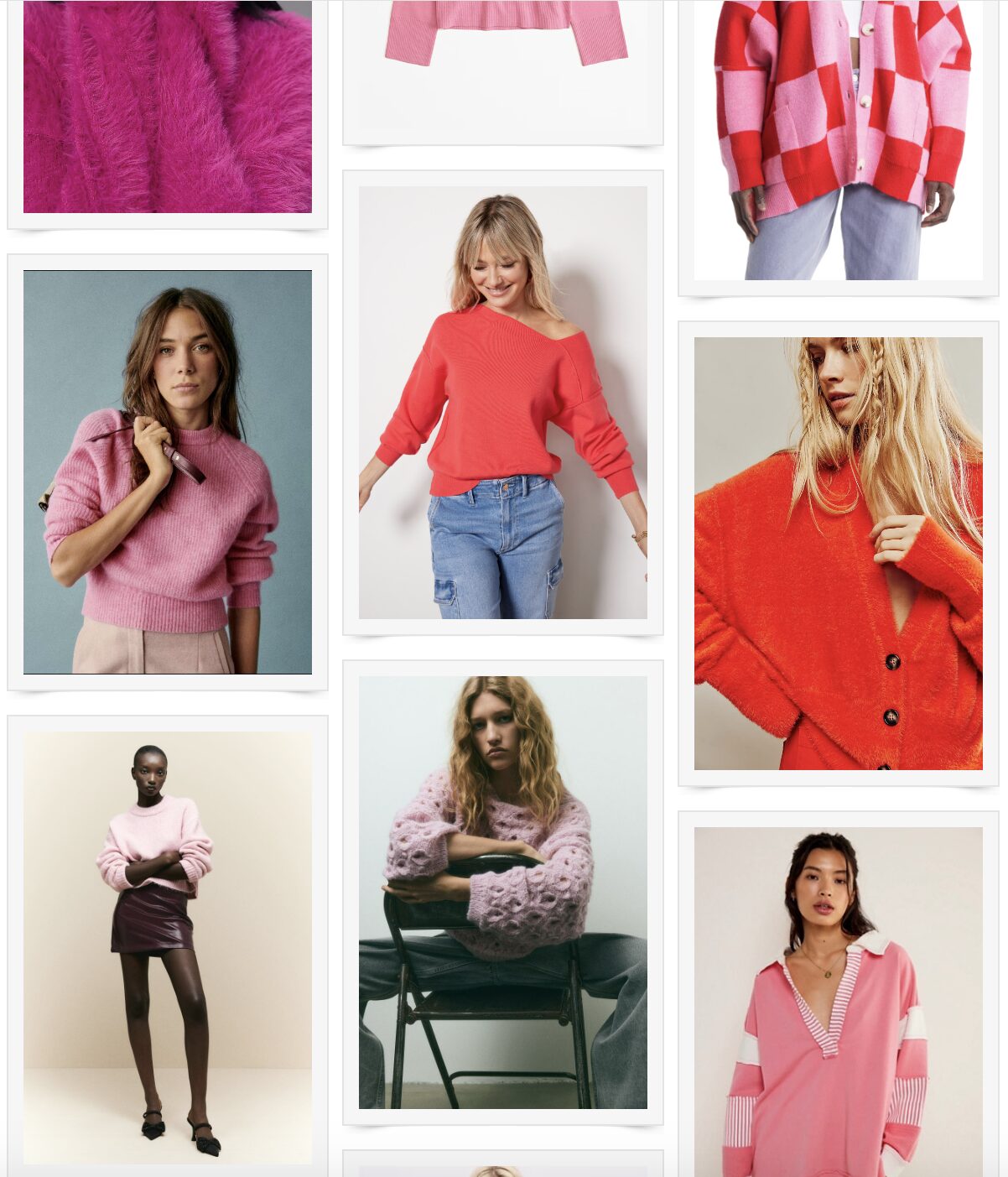









Discussion about this post